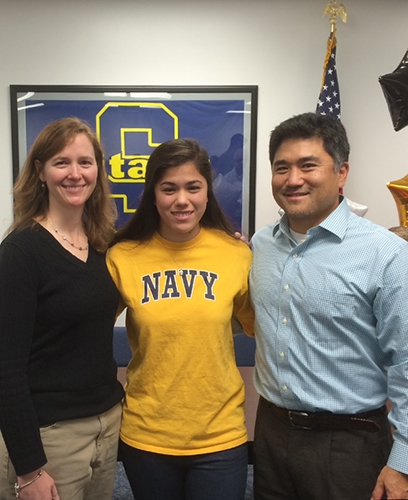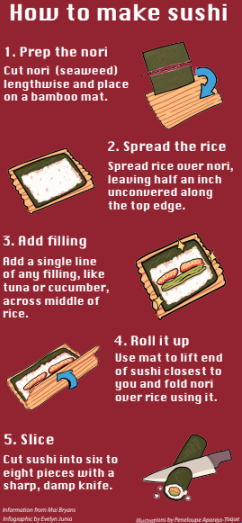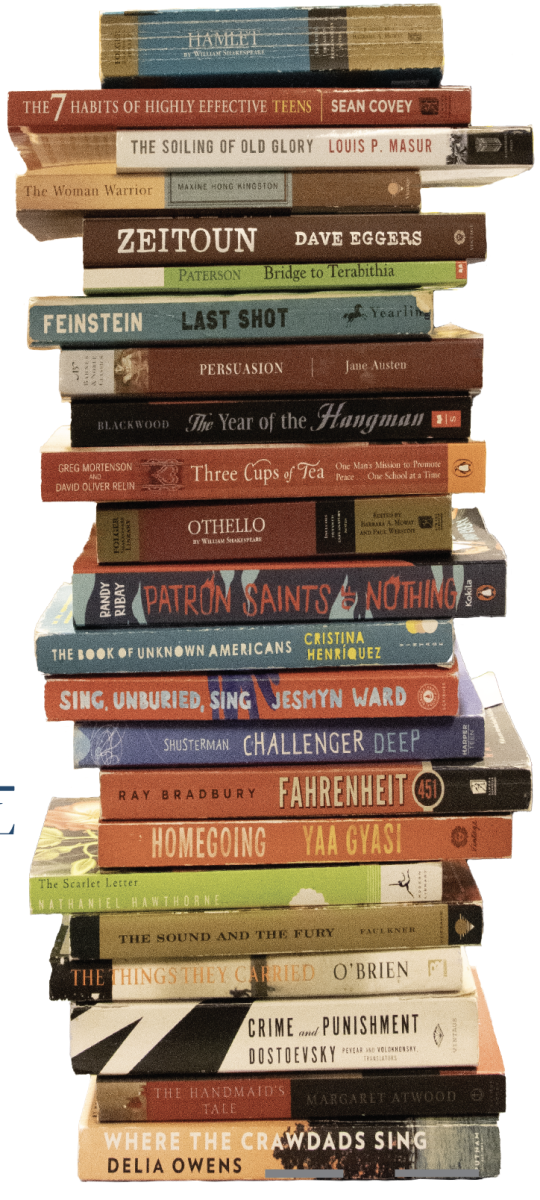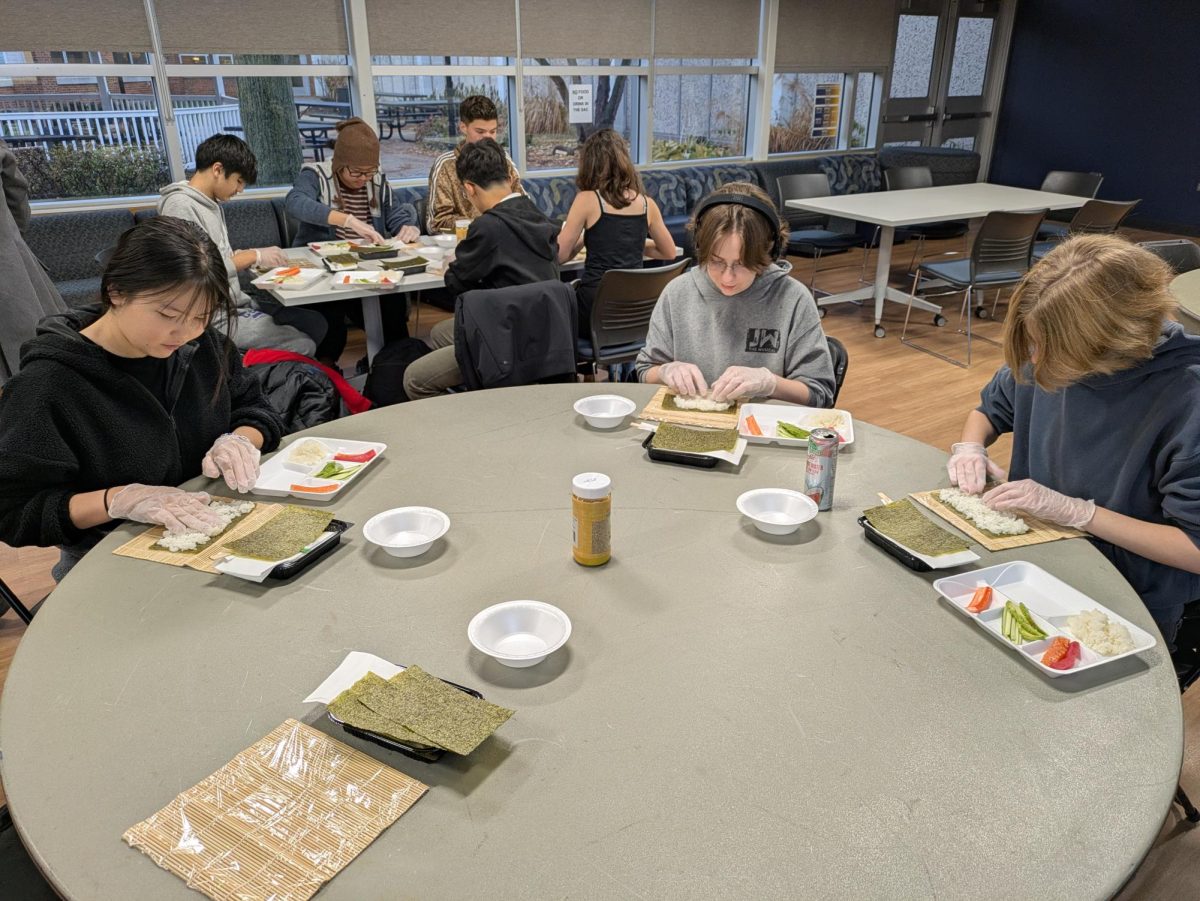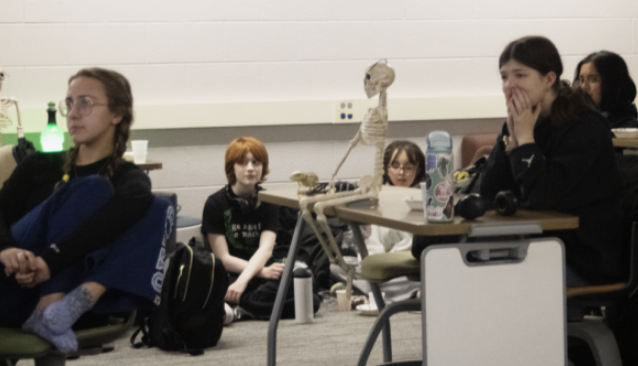Being a part of the military is something that runs deep in many American families. Generation after generation has been involved with the armed forces, and this has lead to the stereotype of “military brats”: the children of military enlistees. They are known to move around a lot and have a strong sense of patriotism. Multiple students at South carry the title.
Senior Autumn Koh is very patriotic due to her parents’ military involvement. Koh’s parents were both enlisted in the army and raised Koh with these ideals.
“I always grew up with a strong focal point in my life on patriotism, loving our country and giving back,” Koh said.
Similarly, sophomore Jacob Boner’s dad, Michael Boner, enlisted in the Navy in the late 1980’s, according to Jacob. Michael was enlisted in the Navy until Jacob was nine years old. His deployment locations included Washington, D.C., Iraq and Korea.
“[My dad’s deployment] was scary, and it was also kind of sad, because he missed out on a lot of things, a lot of first things,” Jacob explained. “So when he came back, his number one mission was to do little things like teach me how to ride a bike or play soccer.”
Growing up, Jacob found it difficult to understand what it was his dad really did. Little misunderstandings like his confusion on his dad’s real job proved to be difficult, according to Jacob.
“I remember we had this mini globe […] and every time my dad moved to a new place, my mom would point it out on the globe, and say, ‘Look, your dad’s here,’” Jacob said.
Although Jacob did not know much about what his dad was doing overseas, his dad’s previous enlistment has had many effects on Jacob’s family, both good and bad. Despite the benefits his family receives from his dad being in the Navy (i.e. price reduction on college tuition and health insurance), the biggest effect his father being in the Navy has had on Jacob and his family is his dad’s Post Traumatic Stress Disorder (PTSD). According to mayoclinic.org, PTSD is a mental health condition triggered by experiencing or seeing a terrifying event. After-effects can include insomnia, paranoia and hostility.
“You could see the change in him when he came back [from war],” Jacob said. “He was a lot more on edge, and he just really couldn’t function in normal life, whether it was a simple thing like going to the grocery store or taking me to school.”
Another influence Jacob’s dad’s enlistment has on him is his reaction to current events. According to Jacob, he reacts differently to current events involving the war than other students might, due to his personal connection to the topic. When he hears about potential threats, his reaction is that he can take a stand against it.
“When ISIS threats first came out, [Americans] thought, ‘Well, this is really scary, this could threaten my home life,’” Jacob said. “But when I saw it,[…] I thought,‘ You know what, if it becomes a greater threat, then I will join the military.’”
Jacob’s patriotism has been influenced by his dad’s previous time in the Navy. Jacob appreciates his dad’s dedication to his country and believes his patriotism is one of his strongest beliefs.
Koh’s parents’ military service not only inspired her patriotism, but also her love of service, and her want to enlist in the military herself.
“[My parents] being in the military definitely opened the window for me to think about, and consider, a military job as an option, and I am [currently] committed to joining the Navy,” Koh said. “I just want to serve my country. Service is really important to me. I’m very grateful to be a citizen here versus any other country in the world.”
Similar to Koh, Jacob has also considered joining the armed forces due to his dad’s involvement.
“I feel pressure from my family, because my family lineage is built around the military, and I feel like no one in my generation has stepped up,” Jacob said. “It’s kind of my call, but whatever happens happens. If I get the spark that I want to be in the Navy then I’ll probably take it, but if I find other options, I’ll probably take those too.”


